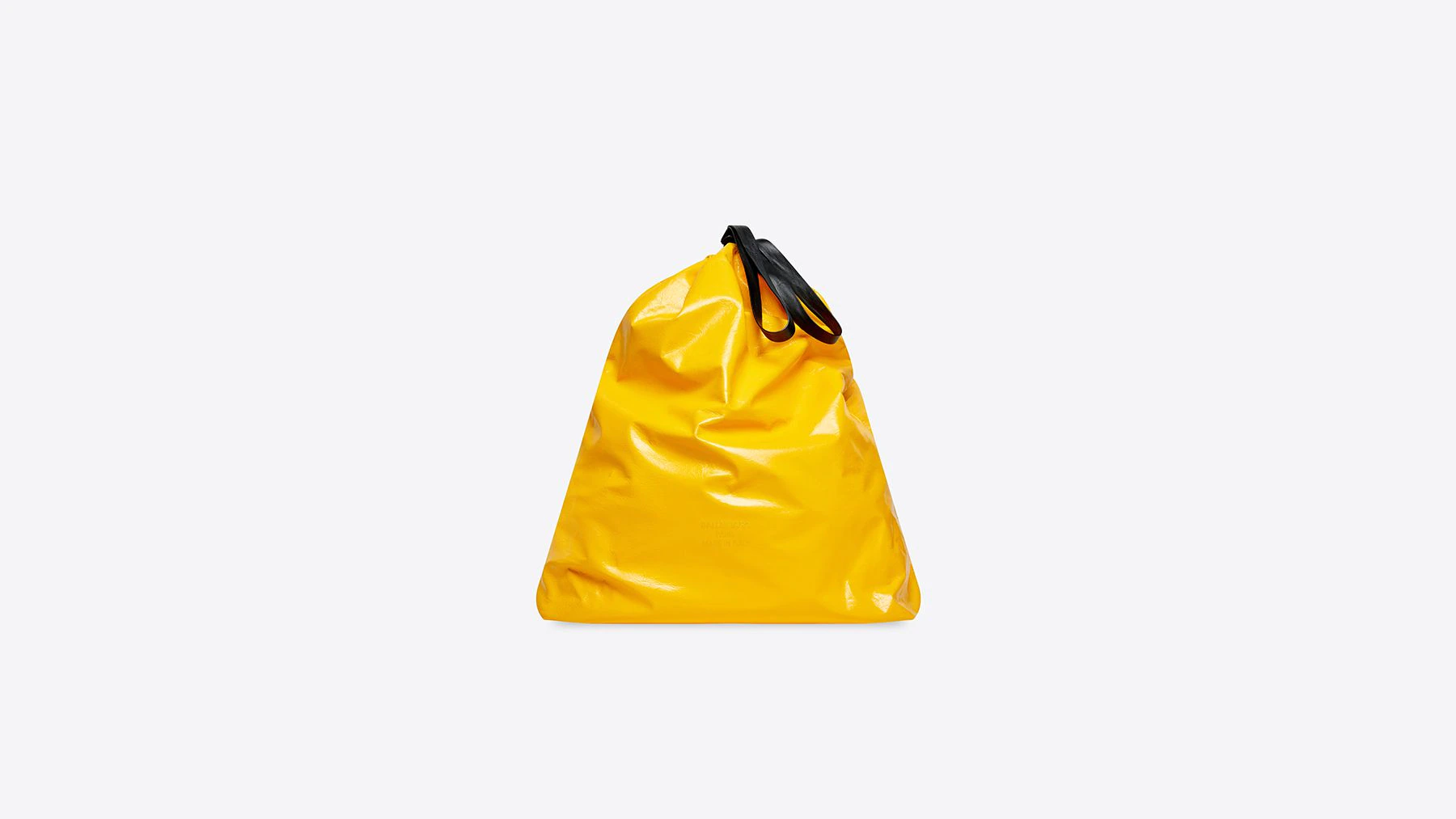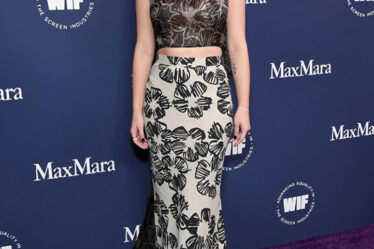
Leave it to Balenciaga to turn trash into brand-building treasure.
Last week, the brand dropped a $1,790 trash bag, setting off another viral storm. To be sure, the bag, which is the work of Balenciaga creative director Demna, isn’t exactly ‘trash.’ Made with calfskin leather, the pouch was originally shown on the Autumn/Winter 2022 runway. The show made headlines for how closely it reflected the current moment: Models trekked through a faux snow globe, bringing to mind the plight of Ukrainian refugees in the wake of Russia’s invasion just days prior.
The ‘trash bag’ stunt follows the now familiar attention-grabbing formula Demna is known for: selling outrageous objects at bank-breaking prices, which question the definition of luxury and poke fun at fashion. In May, he courted controversy when Balenciaga dropped a campaign fronted by an ultra-destroyed version of its signature Paris Sneakers, which were sold in limited quantities for $1,850, and used broken iPhones as invitations to Balenciaga’s show at the New York Stock Exchange. The new trash bag recalls another infamous Balenciaga accessory: in 2017, the brand dropped a $2,000 blue plastic bag that was a dead ringer for IKEA’s 99 cent Frakta sack.
At the time of the trash bag’s runway debut, Demna told WWD “I couldn’t miss an opportunity to make the most expensive trash bag in the world, because who doesn’t love a fashion scandal?”
The designer may be onto something. The week following the bag’s drop, Balenciaga was mentioned in over 54,000 tweets. In May, Balenciaga’s Paris Sneaker campaign generated almost $5 million in media impact value, a measure of conversation on social media, in one week, significantly more than the $2.4 million the brand’s Kim Kardashian campaign created in two weeks, according to fashion data analytics firm Launchmetrics. The garbage bag’s release generated almost $2 million in media impact value in a week.
Though these one-off stunts build buzz quickly, it’s the ongoing partnerships in the same vein that create the most impact. For example, Balenciaga’s collaboration with Crocs, which first debuted as part Balenciaga’s Spring/Summer 2018 ready-to-wear collection and routinely drops new products, like a tot bag in Fall 2022, has generated over $13 million in MIV since August 2021.
Celebrities still play a significant role in rousing conversation around the brand. Co-mentions of Balenciaga and Kim Kardashian (who is regularly photographed wearing the label) have generated almost $90 million in MIV since February, according to Launchmetrics. And of the five weeks in the last five years that Balenciaga was mentioned most online, three spikes were driven by celebrity attendance at the brand’s shows.
There is, however, risk of consumer fatigue in repeatedly using these boundary-bending, trick-mirror tactics: the week of the destroyed Paris sneakers campaign, Brandwatch registered over 18,000 negative mentions of Balenciaga. (Of course, generating conversation — negative or positive — was likely the reason for the campaign in the first place.)
Still, the brand now regularly sits atop the Lyst Index, Lyst’s quarterly ranking of fashion’s most popular labels. Balenciaga’s earned media value has been on the rise since Demna, who is also the founder of Vetements, was appointed creative director in 2015. So too, has revenue. Owner Kering does not break out results for Balenciaga, but annual sales have reportedly surpassed €1.5 billion ($1.54 billion).



